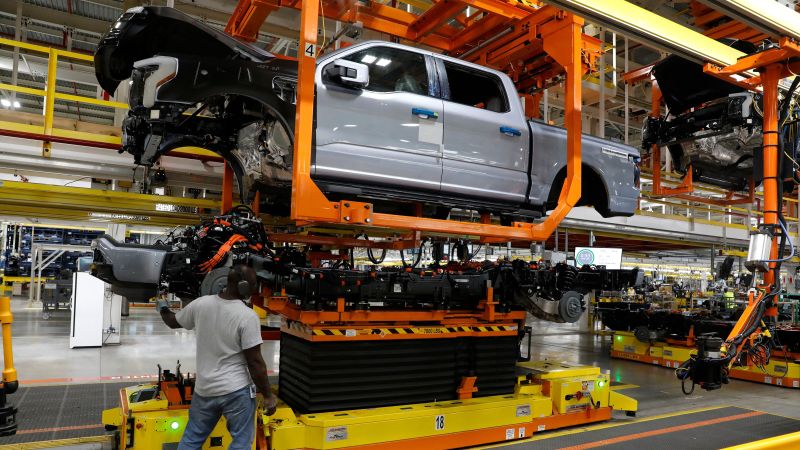Ford on Wednesday acknowledged America’s electric vehicle market just isn’t what the automaker expected it to be: Customers are increasingly price-conscious and range-anxious. So, Ford is making big changes to its EV plans, focusing on hybrids and affordability.
The company announced Wednesday that it is adjusting its roadmap for North American vehicles to include a broader range of electrification options, including lower prices — and longer ranges.
Ford ditched plans for its next lineup of all-electric SUVs, replacing them with hybrid models, which typically offer shorter battery range but longer overall range when combined with a gasoline engine.
That plan alone will cost the company at least $400 million because it needs to write down the manufacturing equipment it had put in place to build the EV SUVs it no longer plans to build. Ford said the change in plans could ultimately cost it upwards of $1.5 billion.
But the company also said it would improve its battery sourcing and increase manufacturing efficiency to save on costs. And just 30% of the company’s annual capital expenditures will be dedicated to pure electric vehicles in the future — down from 40%.
Ford trails Tesla in EV production in America, but its EV business is growing. Its Ford F-150 Lightning is the best-selling electric truck in the United States. Still, vehicles with hybrid technology are becoming increasingly popular in the United States, so Ford decided to meet customers where they are today.
“We learned a lot as the No. 2 U.S. electric vehicle brand about what customers want and value, and what it takes to match the best in the world with cost-efficient design, and we have built a plan that gives our customers maximum choice and plays to our strengths,” said Ford CEO Jim Farley in a statement.
Ford will continue to make EVs but at a slower pace. Ford’s next entry into its EV lineup will be an electric commercial van coming in 2026. That could help it compete with Rivian, which has a deal with Amazon that has made its electric vans ubiquitous across America.
Next, Ford will develop what it calls a “groundbreaking” electric truck, which it has codenamed “Project T3.” It plans to introduce the truck, which will feature bi-directional charging (it can charge your home in a blackout) and improved aerodynamics, in the second half of 2027. That’s a later date than it had initially planned, but Ford said the improvements it plans to make on battery manufacturing will help lower the cost of its truck by then.
“An affordable electric vehicle starts with an affordable battery,” Farley said. “If you are not competitive on battery cost, you are not competitive.”
Read the full article here













